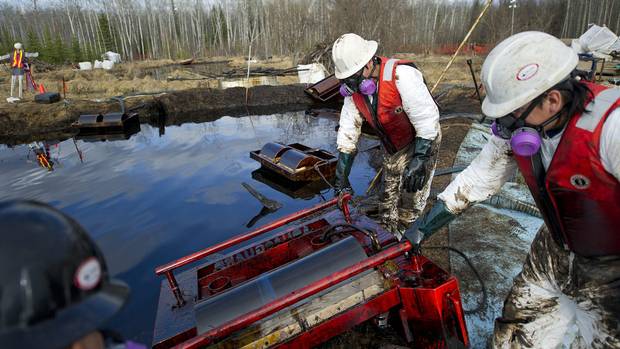The Canadian Energy Pipeline Association (CEPA) is working hard to undo damage caused by pipeline company Kinder Morgan’s refusal to release oil spill response plans in British Columbia. The company’s lack of disclosure angered the province of B.C., especially when it was revealed that Kinder Morgan released detailed spill response plans in Washington State for portions of the pipeline that extend across the border.
The pipeline association recently announced it would form a task force to address the issue, hoping to waylay growing public concerns by developing “guiding principles” for disclosure.
“A number of our members have faced significant public pressure to disclose all information contained in emergency response plans. The CEPA task force will work to support that by establishing clear principles and guidelines that seek to find the right balance between the public’s right to know, the privacy of personal information and the security considerations also required for public safety,” Jim Donihee, chief operating officer with CEPA, said.
In the case of the Kinder Morgan Trans Mountain pipeline, the company argues it shouldn’t disclose spill response plans — even to the province of British Columbia, which has requested the plans during the National Energy Board Review of the Trans Mountain pipeline — because of “safety concerns.”
DeSmog Canada first published the documents Kinder Morgan publicly released in the U.S., comparing them to similar documents severely redacted or completely withheld in B.C.
Since then, the story has been covered in the Globe and Mail, the CBC and the Canadian Press, forcing Kinder Morgan and the National Energy Board (NEB) to defend the company’s actions.
NEB spokesman Darin Barter said the board was considering making public pipeline emergency plans mandatory for energy companies.
“Our chairman is not very happy that there’s a lack of transparency around these emergency response plans,” Barter said. “Canadians deserve to have that information. There’s a public will for that information. Industry needs to find a way to make that information public.”
In a recent letter to Enbridge, the NEB expressed concern over the company’s requirement that municipalities sign non-disclosure agreements before emergency plans are released.
“I am concerned that Enbridge’s practice of requesting NDAs is not consistent with the principle of regulatory transparency that guides the board’s regulatory approach,” NEB chairman Peter Watson said in a letter, available on the NEB website.
Watson said he would like to know how Enbridge would proceed with a municipality unwilling to sign a non-disclosure agreement.
Despite the NEB’s recent push for increased transparency, the board ruled Kinder Morgan was within its right to deny the province of British Columbia detailed spill response and emergency plans for the Trans Mountain pipeline.
When B.C. asked the NEB to compel Kinder Morgan to release the plans, the board refused.
As DeSmog Canada reported, the plans withheld in B.C. included contact information for first responders and company officials and outlined access to oil booms, pumps, hoses and storage tanks and other supplies needed in the event of an oil spill.
Canadian Energy Pipeline Association vice-president Pay Smyth said the group is seeking disclosure standards that will satisfy the public demand for disclosure while protecting personal information of company employees and first responders.
“This is by no means a PR exercise,” Smyth told the Calgary Herald. “We are treading new ground here. Industry recognizes that Canadians have the right and the need to know and we’re going to make sure they have access to information.”
Image Credit: Jimmy Jeong, JimmyShoots.com via The Globe and Mail
Subscribe to our newsletter
Stay up to date with DeSmog news and alerts








